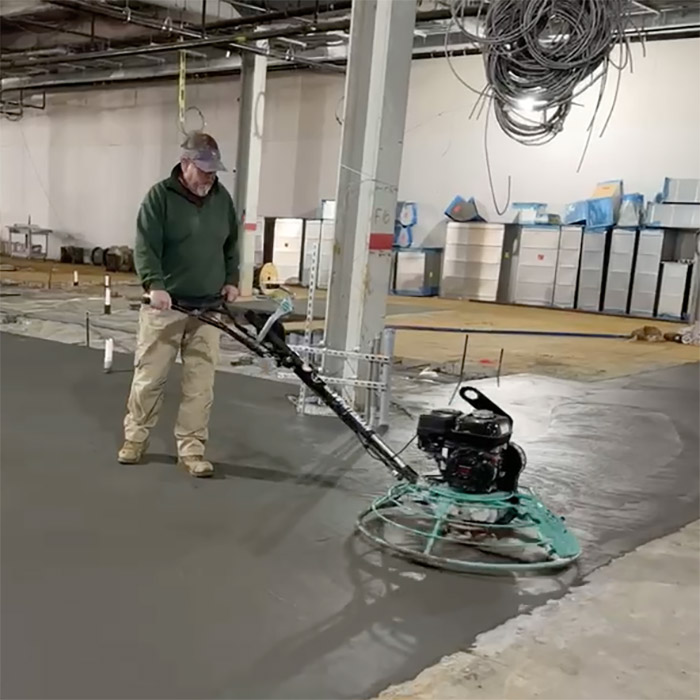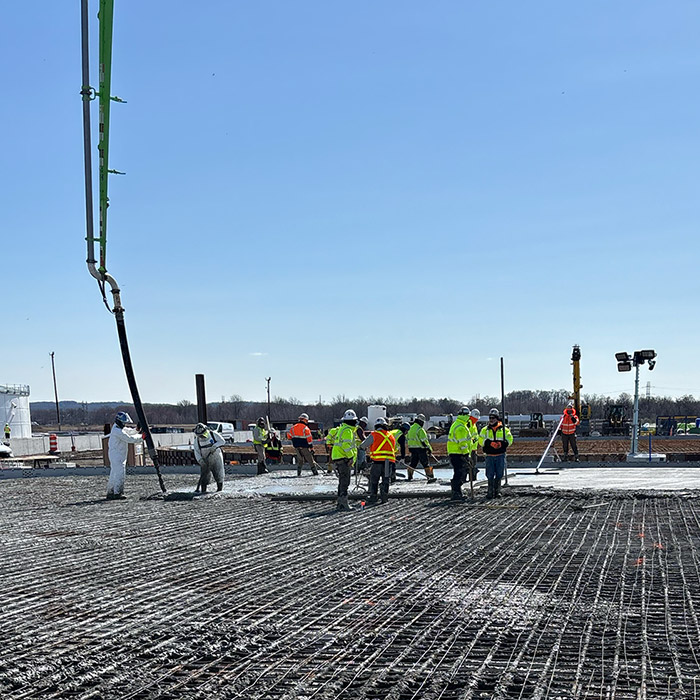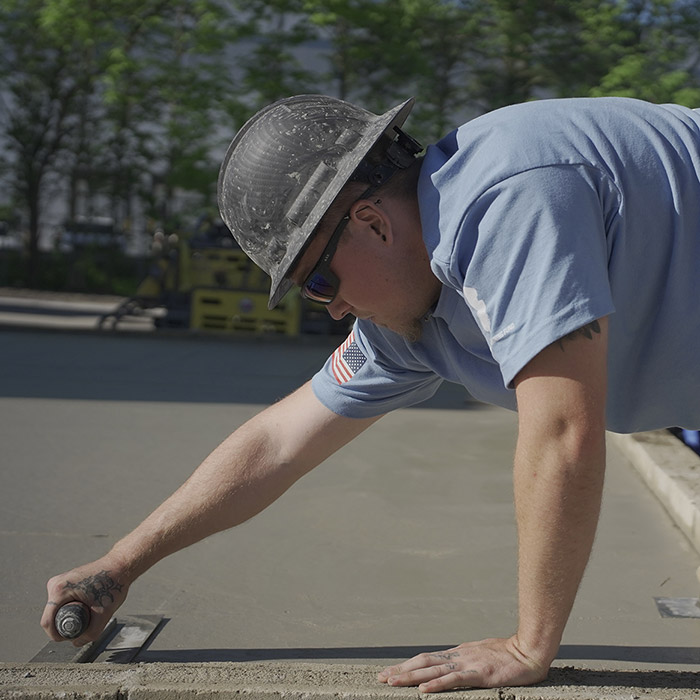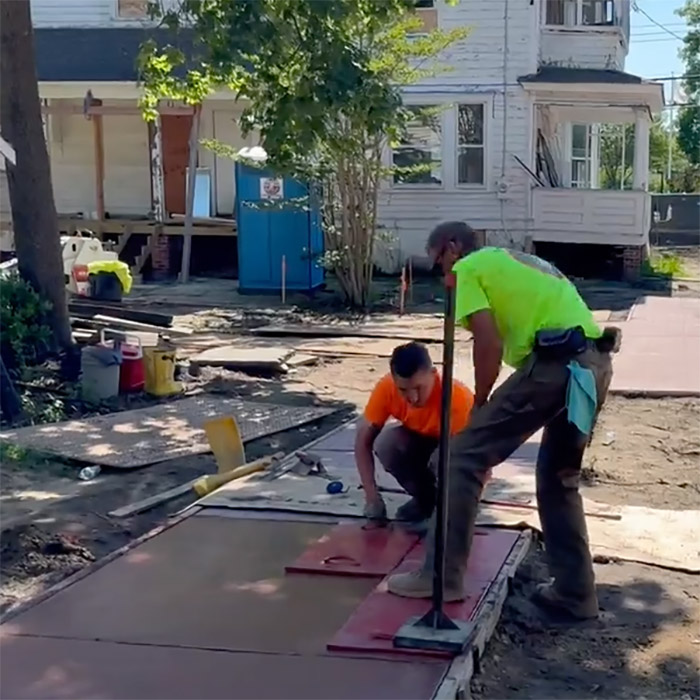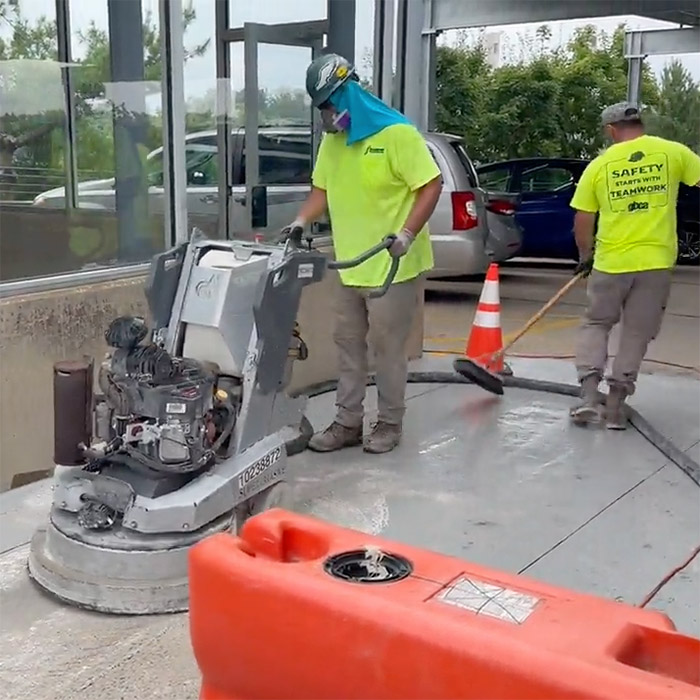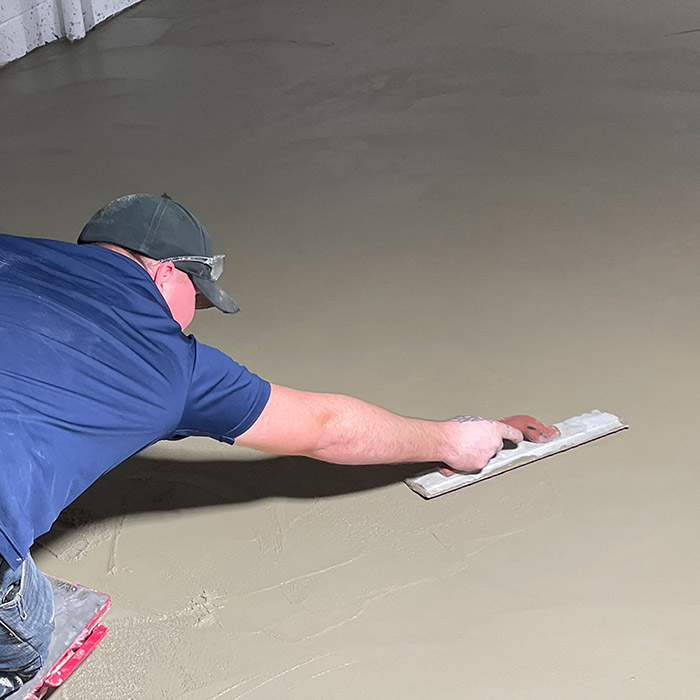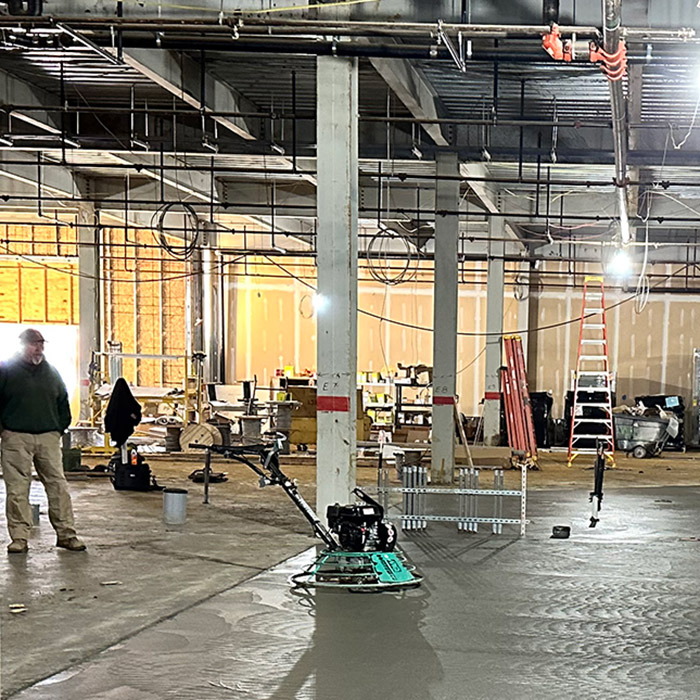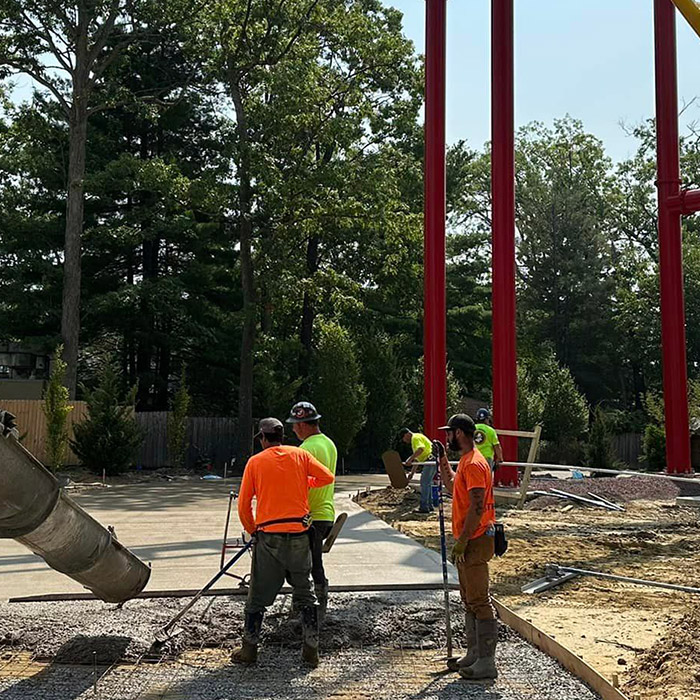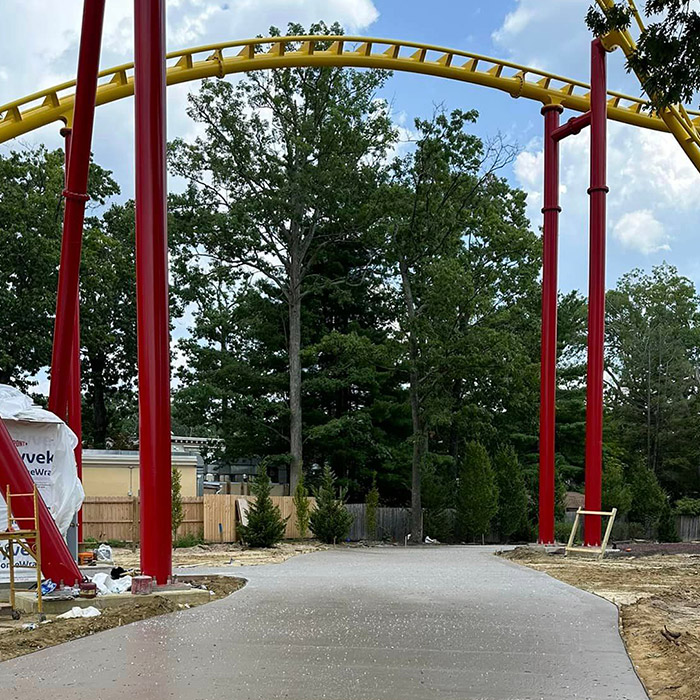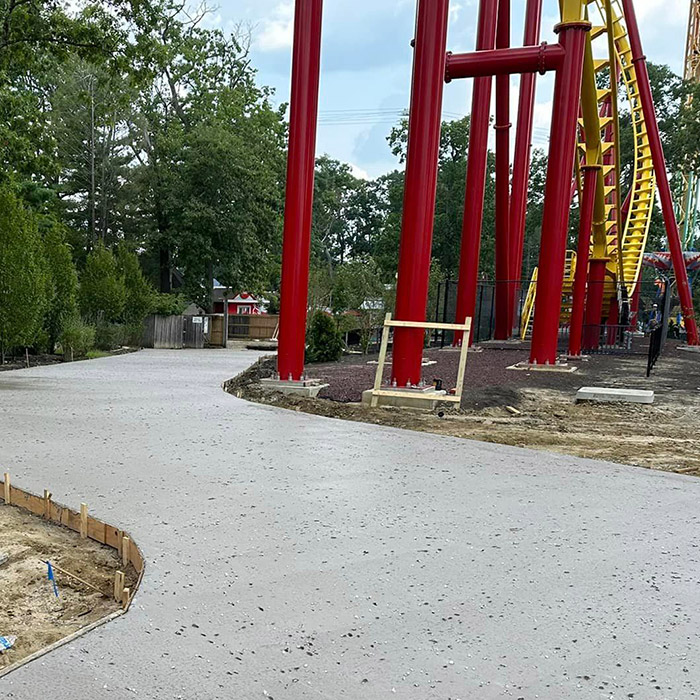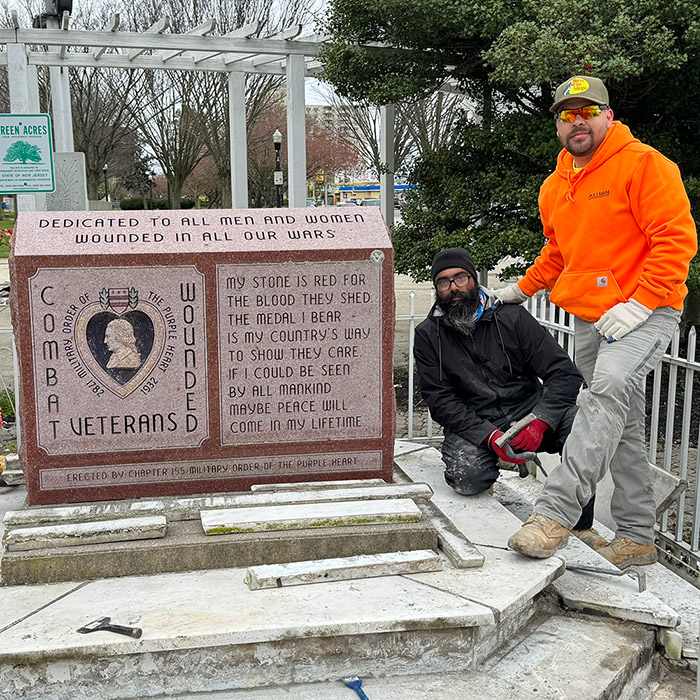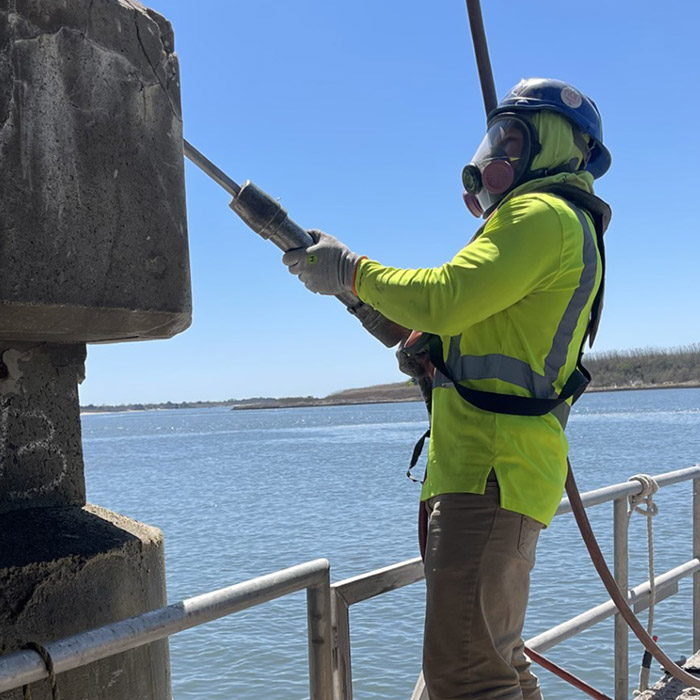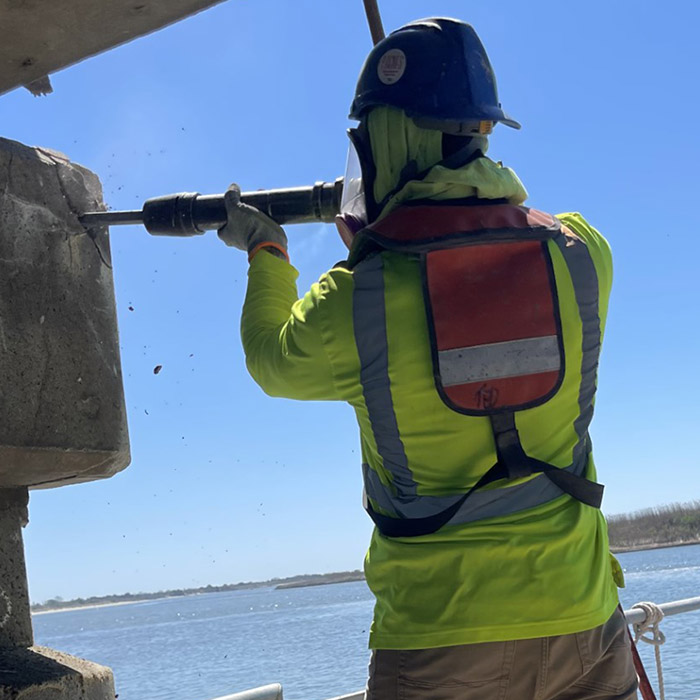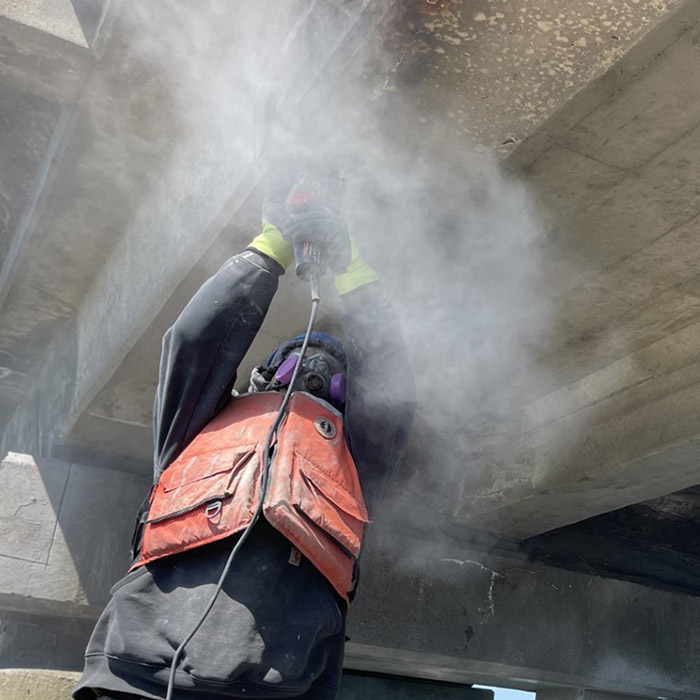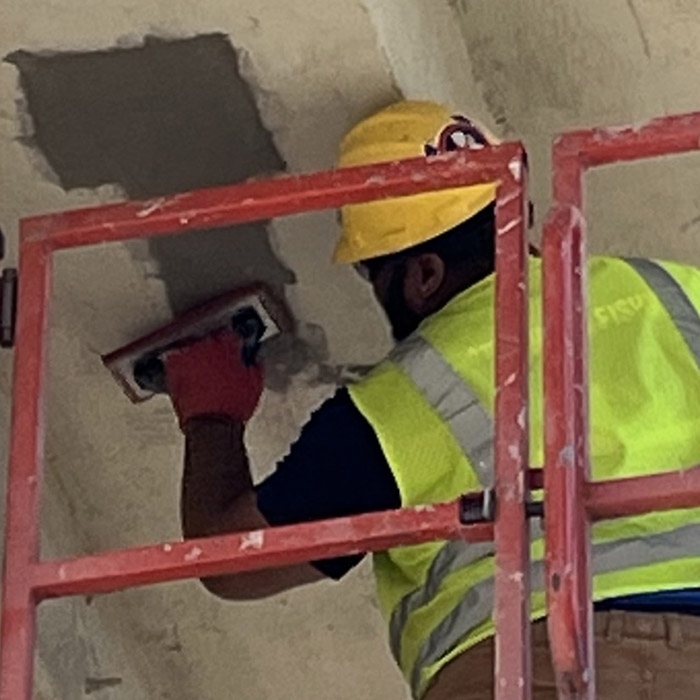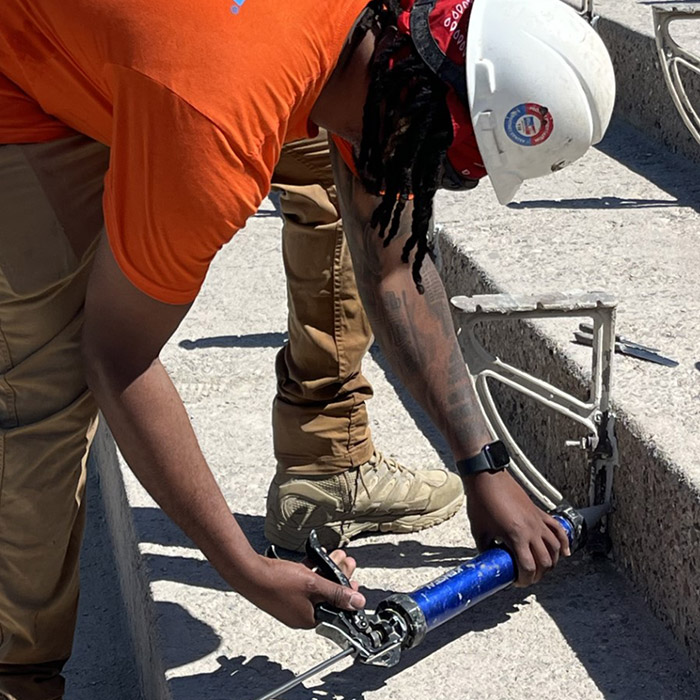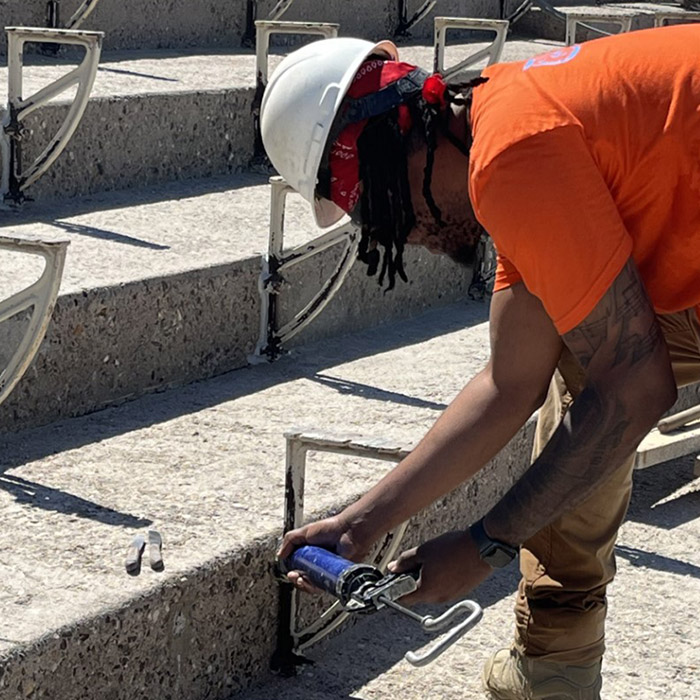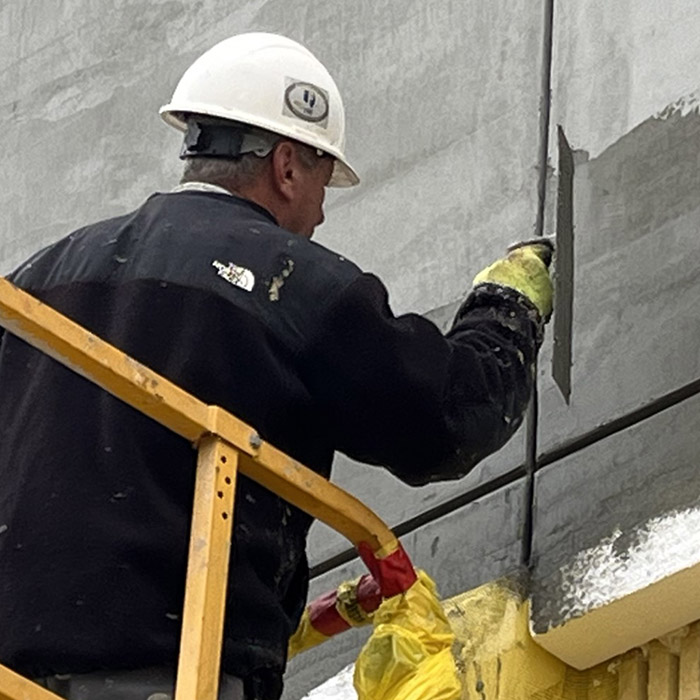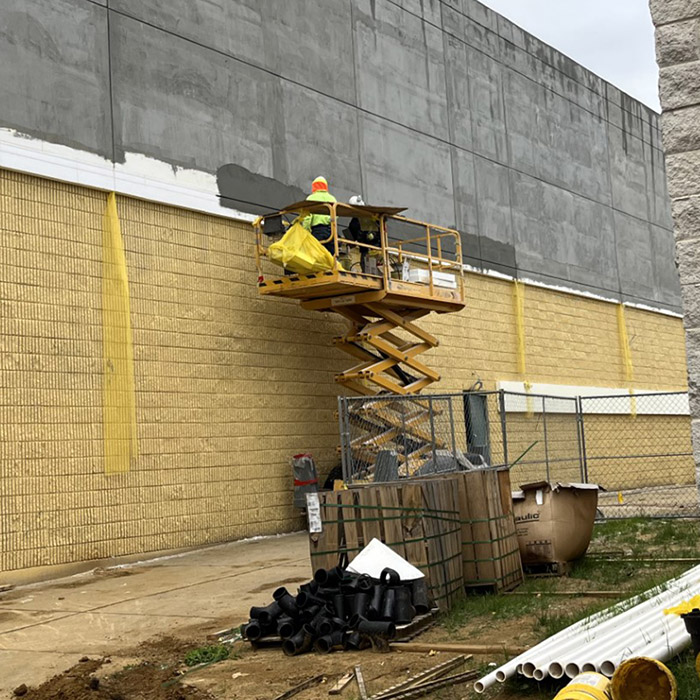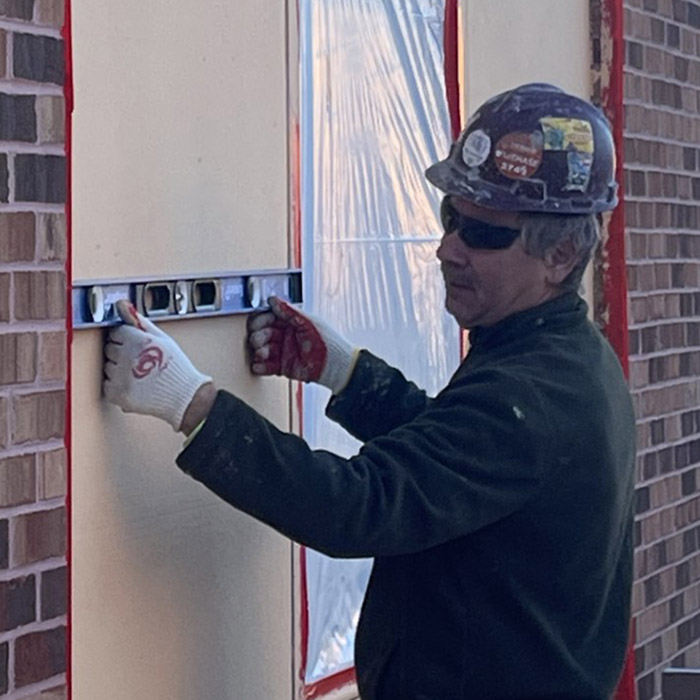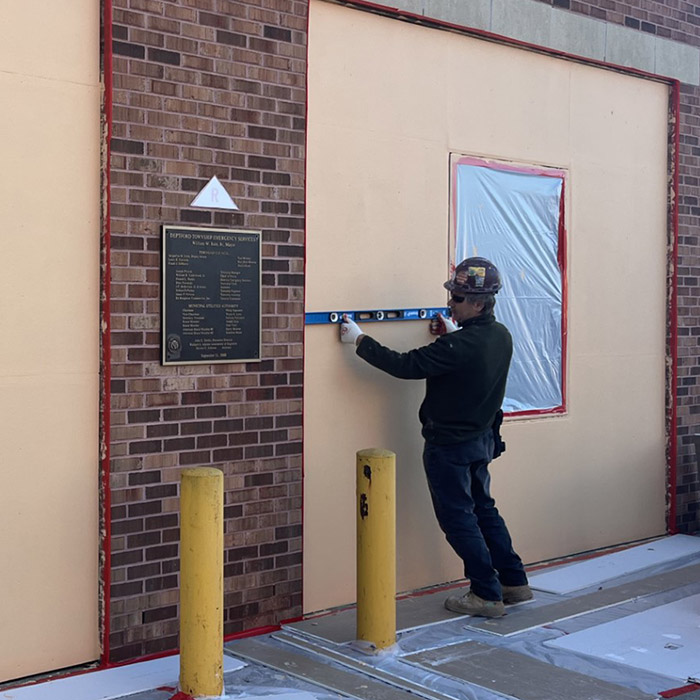Crafts We Offer
The New Jersey Bricklayers and Allied Craftworkers (NJBAC) union represents a diverse range of skilled craftworkers in the trowel trades. Journeymen in this union can perform various specialized jobs, including:
Masonry Trades
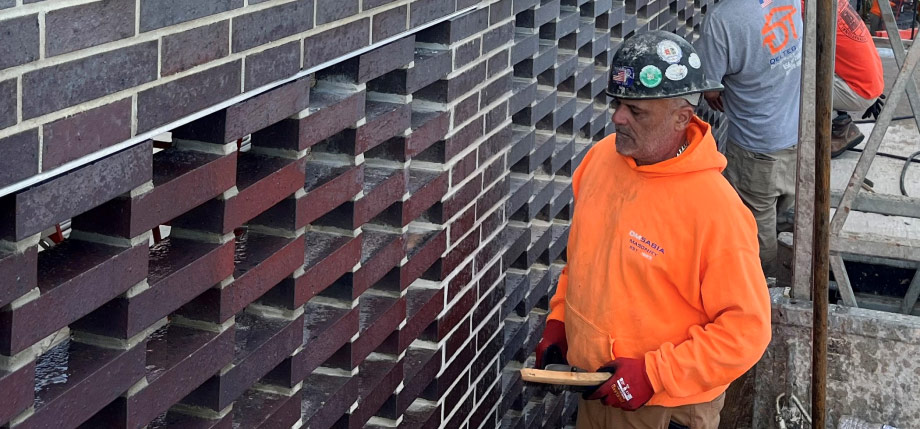
Bricklayers
Bricklayers construct and repair walls, partitions, arches, fireplaces, chimneys, and other structures using materials such as brick, structural tile, concrete block, gypsum, and terra cotta.
Key Responsibilities:
- Construction and Repair: Bricklayers construct and repair walls, foundations, partitions, arches, chimneys, fireplaces, and other structures using bricks, concrete blocks, and other similar materials.
- Blueprint Interpretation: They study plans and specifications to determine materials required, dimensions, and installation procedures.
- Material Preparation: Bricklayers cut and shape bricks, stones, and other building blocks using various tools and techniques.
- Mortar Application: They apply mortar as a binding agent between bricks and blocks, ensuring proper adhesion and stability.
- Structural Alignment: Bricklayers check vertical and horizontal alignment to ensure the structure is level and plumb.
Specialized Tasks:
- Decorative Work: Some bricklayers specialize in creating decorative brickwork or stonework for aesthetic purposes.
- Restoration: They may be involved in restoring, cleaning, or repairing existing masonry structures.
- Refractory Work: Specialized bricklayers may work on lining furnaces, kilns, and boilers with heat-resistant materials.
Bricklayers contribute to the construction and maintenance of buildings and structures in New Jersey, adhering to local building codes and regulations. Their work is essential in creating safe, durable, and aesthetically pleasing buildings throughout the state.
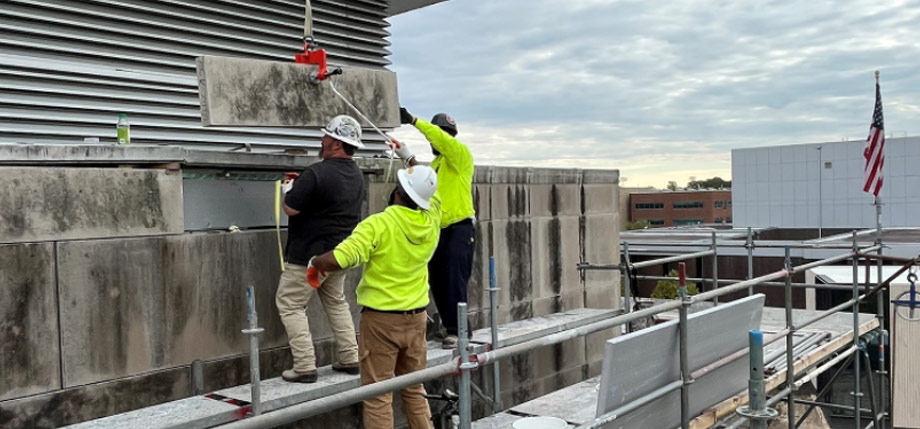
Stone Masons
Stone masons install and work with various types of stone in different settings. They prepare areas for installation and provide finishing services like polishing, grinding, and sealing.
Key Responsibilities:
- Construction and Repair: Stone masons construct and repair walls, foundations, partitions, arches, chimneys, fireplaces, and other structures using stones, bricks, and similar materials.
- Blueprint Interpretation: They study plans and specifications to determine materials required, dimensions, and installation procedures.
- Stone Preparation: Stone masons cut, shape, and polish stones using machines and hand tools to fit specific design requirements.
- Structure Building: They lay stones in rows, designs, and shapes, spreading mortar between joints to create various structures.
Specialized Tasks:
- Decorative Work: Some stone masons create decorative stonework for aesthetic purposes, including patios, garden walls, and other ornamental installations.
- Restoration and Conservation: They may be involved in repairing, cleaning, or restoring existing masonry structures, particularly in heritage conservation projects.
- Monumental Masonry: Stone masons may design and cut monumental masonry and lettering for memorials and other commemorative structures.
Stone masons contribute to the construction, maintenance, and restoration of buildings and structures in New Jersey, adhering to local building codes and regulations. Their work is essential in creating durable, aesthetically pleasing, and historically accurate structures throughout the state.
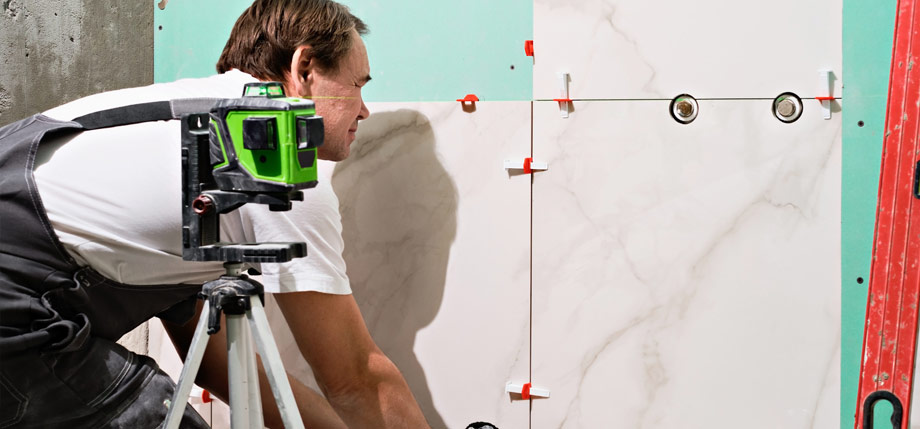
Marble Masons
Similar to stone masons, marble masons specialize in working with marble, installing it in various settings and providing finishing services.
Key Responsibilities:
- Marble Installation: Marble masons install marble in various settings, including floors, walls, and countertops.
- Blueprint Interpretation: They read and interpret blueprints and technical drawings to understand project specifications.
- Material Preparation: Marble masons measure and cut marble slabs to required specifications using hand and power tools.
- Shaping and Polishing: They shape and polish marble using specialized tools to achieve the desired finish.
Specialized Tasks:
- Precision Work: Marble masons ensure all installations meet safety and quality standards, paying close attention to detail.
- Restoration: They repair and restore damaged marble surfaces, maintaining the integrity and appearance of existing structures.
- Decorative Elements: Some marble masons create decorative elements and intricate designs using marble.
Marble masons contribute to the construction, renovation, and restoration of buildings and structures in New Jersey, adhering to local building codes and regulations. Their specialized skills in working with marble help create durable, aesthetically pleasing, and often luxurious finishes in various construction projects throughout the state.
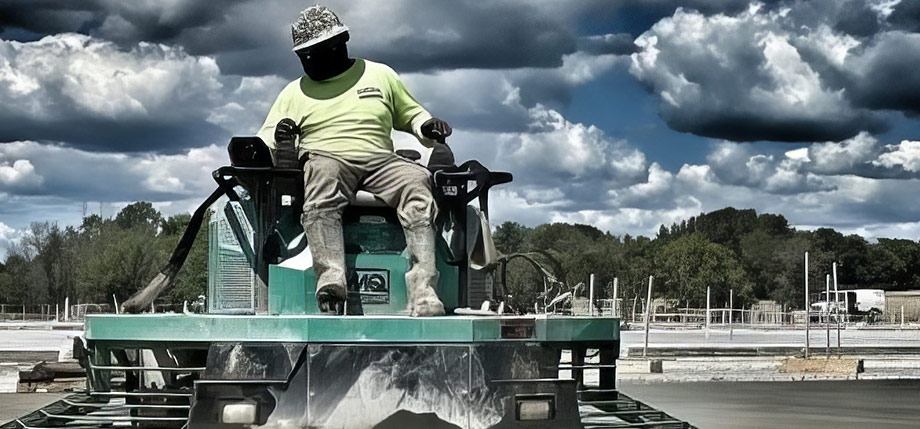
Cement Masons
Cement masons work with concrete, pouring and finishing various structures such as floors, steps, sidewalks, driveways, curbs, and gutters. They also apply toppings, overlays, stains, and sealers to new and existing concrete.
Key Responsibilities:
- Concrete Placement: Cement masons pour and spread concrete for various structures such as floors, walks, sidewalks, roads, and curbs.
- Surface Finishing: They smooth and finish the surfaces of poured concrete using a variety of hand and power tools like trowels, floats, and power screeds.
- Form Work: Cement masons check, set, and align forms that hold concrete to the desired pitch and depth.
- Quality Control: They monitor how environmental factors like wind, heat, or cold affect the curing of concrete and take measures to prevent defects.
Specialized Tasks:
- Decorative Techniques: Some cement masons apply color to concrete surfaces, create textures, or expose aggregate in walls and sidewalks.
- Structural Elements: They may be involved in making concrete beams, columns, and panels for construction projects.
- Repair and Maintenance: Cement masons also patch voids and repair existing concrete structures.
Cement masons contribute to the construction and maintenance of various structures throughout New Jersey, adhering to local building codes and regulations. Their work is essential in creating durable, functional, and aesthetically pleasing concrete surfaces for both public and private construction projects across the state.
Restoration and Finishing
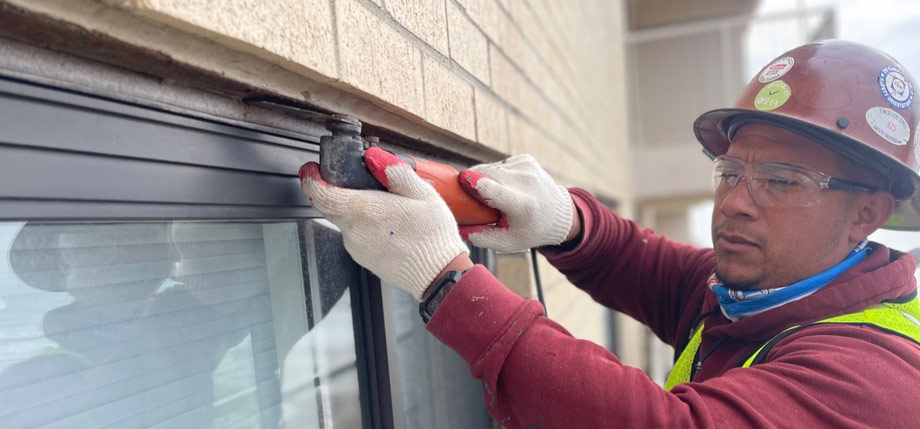
Pointers/Cleaners/Caulkers (PCC)
These specialists focus on building and historic restoration. They replace mortar between masonry units, clean all masonry surfaces, and apply sealants to expansion joints in new and old buildings.
Key Responsibilities:
- Restoration and Repair: PCCs restore and repair pre-existing structures and historic buildings, focusing on detailed precision.
- Cleaning: They clean masonry structures using various methods such as:
- Chemical washing
- Sandblasting
- Steam cleaning
- Power washing
- Hand cleaning
- Pointing: PCCs remove deteriorated mortar from masonry joints and replace it with fresh mortar, ensuring proper bonding and weatherproofing.
- Caulking: They apply sealants to joints in buildings and other structures to make them watertight. This includes:
- Removing old caulking
- Preparing joints with solvents and primers
- Applying new caulking materials
Specialized Tasks:
- Masonry Repair: PCCs work on brick, stone, and concrete restoration, including patching and rebuilding.
- Waterproofing: They apply waterproof coatings and sealants to protect structures from water damage.
- Concrete Repair: This includes removing damaged concrete, preparing surfaces, and applying new concrete or specialized repair materials.
- Scaffolding and Rigging: PCCs set up and use various types of scaffolding and rigging equipment to access work areas safely.
Pointers/Cleaners/Caulkers contribute significantly to maintaining and preserving New Jersey's built environment. Their work ensures that buildings remain structurally sound, aesthetically pleasing, and protected from environmental damage, thus playing a vital role in the state's construction and restoration efforts.
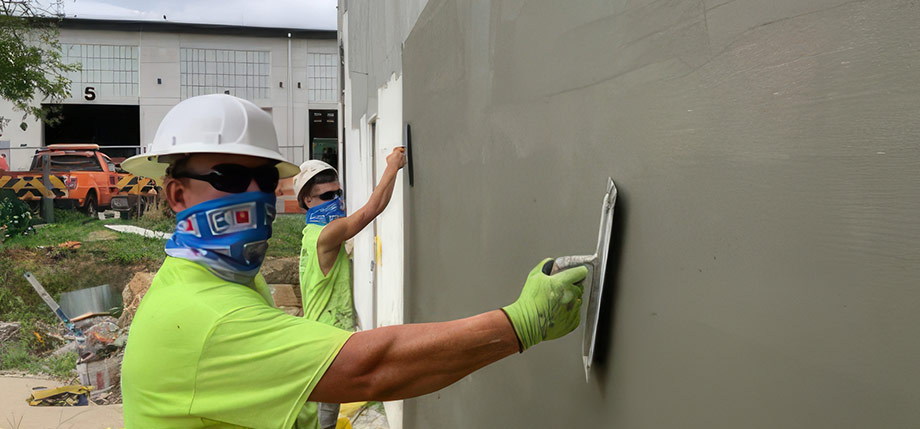
Plasterers
Plasterers play a crucial role in the construction and renovation industries, particularly in the context of New Jersey's Building and Construction (NJBAC) sector. Their primary responsibilities involve applying EIFS material to exterior as well as interior plaster walls, cement, stucco, or similar materials to various surfaces, including walls and ceilings.
Key Responsibilities of Plasterers:
- Surface Preparation: Before applying plaster, plasterers prepare surfaces by cleaning and ensuring they are smooth and free from debris. This may include applying bonding agents to enhance adhesion.
- Mixing Plaster: Plasterers mix plaster materials to the right consistency, combining plaster powder with water and other additives as needed. This step is critical for ensuring the plaster adheres properly and sets correctly.
- Application of Plaster: Using tools like trowels and brushes, plasterers apply plaster to surfaces in layers. They aim for a smooth finish while paying attention to details such as corners and edges.
- Finishing Techniques: Depending on project requirements, plasterers may employ various finishing techniques to create textures or decorative elements on the plastered surface.
- Repair and Restoration: Plasterers also handle repairs on existing surfaces, addressing issues like cracks or water damage. This involves removing damaged areas, applying new plaster, and matching textures for a seamless appearance.
- Cleanup: After completing their work, plasterers clean the job site and dispose of waste materials properly.
Plasterers typically work on construction sites, which can be dynamic environments with multiple tradespeople collaborating. They may also work in residential or commercial settings during renovation projects. Their work often requires physical endurance as they spend long hours on their feet, sometimes using ladders for high ceilings or intricate designs.
Types of Plastering Specialties:
Plasterers may specialize in different areas:
- Solid Plastering: Focuses on traditional techniques using gypsum or cement.
- Drywall Finishing: Involves working specifically with drywall materials.
- Ornamental Plastering: Specializes in decorative elements for high-end or historic buildings.
- Venetian Plastering: Applies a polished finish that mimics marble surfaces.
Plasterers are essential for both aesthetic and functional purposes in building construction and renovation projects within New Jersey's construction landscape. Their expertise contributes significantly to the quality and durability of interior and exterior surfaces.
Specialized Masonry
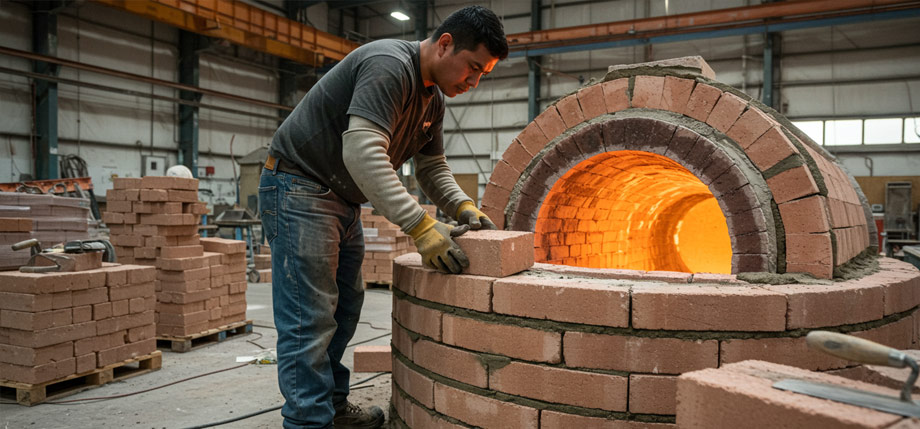
Refractory Specialists
These craftworkers lay firebrick and refractory tile to build, rebuild, or patch high-temperature equipment such as boilers, ovens, furnaces, converters, and soaking pits.
Key Responsibilities:
- Installation of Refractory Materials: Refractory specialists oversee the installation of refractory linings in high-temperature equipment, such as furnaces, kilns, and boilers. This involves selecting appropriate materials like refractory bricks, castables, and plastics that can endure extreme heat.
- Maintenance and Repair: They conduct inspections of existing refractory systems to identify wear or damage. Specialists develop maintenance plans to prolong the lifespan of these materials and perform necessary repairs or replacements.
- Technical Guidance: Refractory specialists provide technical support and training to other personnel on the proper handling, installation, and maintenance of refractory materials.
- Collaboration with Teams: They often work alongside engineers, project managers, and other tradespeople to ensure that refractory installations meet safety standards and operational requirements.
- Data Analysis and Reporting: Specialists analyze performance data of refractory systems, generating reports that inform maintenance schedules or improvements needed for efficiency.
Refractory specialists contribute significantly to the durability and efficiency of industrial processes in New Jersey. Their expertise ensures that critical equipment operates safely and effectively, which is vital for various sectors including manufacturing, energy production, and construction.
